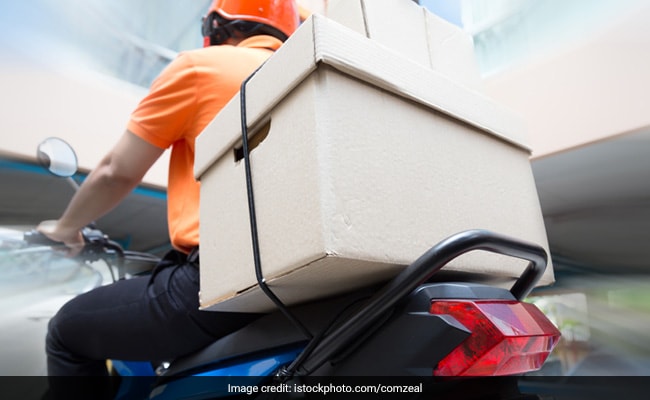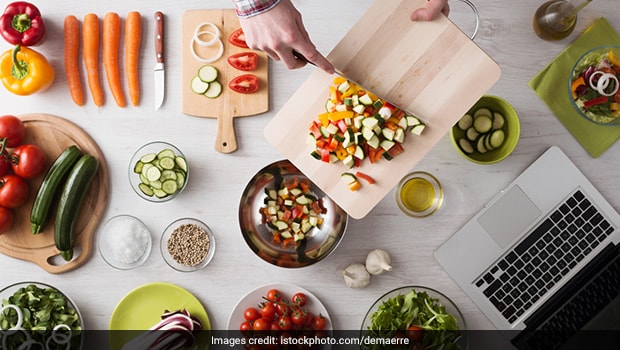The food delivery space has been full of lots of happenings in the recent past. The purchase of Uber Eats by Zomato India reduced the number of players in the space, thus intensifying the fight for the top place in the market. Food aggregator apps offer great discounts while claiming delivery within 30 minutes and assuring impeccable food quality. But what exactly goes on behind the scenes of these apps? How do restaurants cater to the demand of online orders with equal fervour as their offline diners? The secret lies in 'dark' kitchens, which are fast gaining popularity in the food delivery space.
'Dark' kitchens are developing in India and are largely based on a delivery-only model with an aim to cater to the fast-growing consumer demand through food apps. Many people also refer to them as 'ghost' kitchens, as their existence is unknown to many. Haldirams, Chaayos, Keventers and Saravana Bhawan are a few eateries, which have set up these 'dark' kitchens in partnership with food delivery app Zomato. Also known as 'cloud' kitchens, they exist in areas where the eateries typically are unable to deliver. These delivery-only kitchens are the reason why food can be delivered from these restaurants even if their outlet is not located close to the consumer's home.
"We started this model in March 2018, when we realised that while a lot of budding entrepreneurs are setting up new restaurants and cloud kitchens, the pace of setting up new kitchen infrastructure has been lagging behind the demand for them," Mohit Sardana, Chief Operating Officer, Food Delivery, at Zomato told IANS.
"We wanted to accelerate the process of investment in kitchen infrastructure in areas facing a supply deficit and therefore, created the Zomato Kitchens model. Today, we are present in 50+ cities with 700+ kitchens that are already operational," Sardana added.
(Also Read: Indian Online Food Delivery Industry To Hit 8-Billion-Dollar Mark By 2022: Report)
 Zomato has tied up with several restaurants for cloud kitchens.
Zomato has tied up with several restaurants for cloud kitchens. Swiggy followed a similar strategy with its initiative Swiggy Access in 2018, and it has since created more than 1,000 cloud kitchens for its restaurant partners. Food aggregator app initiatives such as this helps restaurants expand within the city and even outside of it. The best thing about dark kitchens is that there is no rent or deposit charged, thus making it a low business risk and low investment initiative.
"If you look at our model, we ensure the restaurateur is supported well enough to focus on what he does best -- food -- instead of being weighed down by compliances and high rentals, among other necessities. That too, with minimum investment. We also draft a customised growth plan with aggressive marketing support, which is unique to their business proposition," Sardana said.
Another thing that has worked in the favour of the rise of dark kitchens is the data about consumer's preferences from the food aggregator apps. This data allows them to make changes in their strategies according the demand that a particular restaurant generates. Swiggy, for instance, shares valuable insights related to demand-supply gaps in the food chains for the benefit of restaurateurs.
(Also Read: Swiggy India Admits Food Prices May Be Higher Online Vs At The Restaurant)
 Swiggy India also boasts of cloud kitchen facilities.
Swiggy India also boasts of cloud kitchen facilities. As for food safety and quality assurance, the food delivery platform has also mandated a FSSAI (Food Safety And Security Authority Of India) license for all cloud kitchens. Hygiene audits are regularly conducted on the cloud kitchens with third-party audit firms.
"These are delivery only dark kitchens and are not usually set up on high streets. However, there will be a few locations which are on high footfall areas and can be easily spotted. On the app, all kitchen restaurants appear in the same manner to a user as any other delivery only outlet on our platform," Sardana added.
The basic idea behind cloud kitchens or dark kitchens is to enable restaurants to cater to the growing demand and expand beyond existing markets. Cloud kitchens should not see the basic requisites as a hindrance; rather, these partnerships should be seen as a profitable win-win situation for all parties involved.
(This content including advice provides generic information only. It is in no way a substitute for qualified medical opinion. Always consult a specialist or your own doctor for more information. NDTV does not claim responsibility for this information.)







